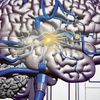introduction
introduction
A century after the first human brain signal was captured with EEG, neurotechnology has progressed from a clinical aid for diagnosis to advanced brain-computer-interfaces capable of restoring speech or movement in patients.
These days, the knowledge, techniques, and devices that were originally designed for medical use are increasingly being applied to the consumer market and broader social realms, including education, personalized healthcare, and national security. New patents and acquisitions by Big Tech indicate that neurotechnology is on the brink of becoming mainstream.
This rapid diffusion creates a dual challenge: first, converting the efficacy and reliability of medical devices to other social and economic contexts when the former still face barriers to effective deployment; and second, developing ethical, legal, and governance frameworks for neurotechnologies that interact directly with the human mind outside of medical supervision.
The Neurotechnology Shift, a joint initiative of the Center for the Governance of Change and Fundación Tatiana, addresses these challenges through interdisciplinary research and policy engagement. Its goal is to generate knowledge on this underexplored but fast-moving frontier sector, and to bring insights to key stakeholders and policy discussions so that society can harness the opportunities of neurotechnology while mitigating its risks.

This research program will conduct an interdisciplinary inquiry into four core dimensions of the neurotechnology shift:
- Business: the commercial incentives and market forces driving adoption.
- Applicability: the state of the art in medical neurotechnologies and their translation to non-clinical contexts.
- Ethics and Privacy: dilemmas raised by technologies that interact directly with the human mind without clinical supervision.
- Policy: recommendations for proactive governance to maximize benefits and mitigate risks.
The program will produce thematic papers, policy briefs, case studies, and a final executive report with actionable recommendations, and will socialize these outputs through public and private events as well as active participation in policy fora.
News
News
RESEARCH TEAM
RESEARCH TEAM

